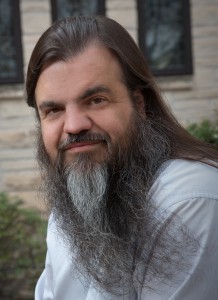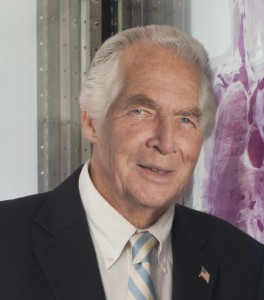Opening Plenary Session
Monday — 1:15 p.m. to 2:30 p.m.
 |
In Conversation With
Bryan AlexanderHead, Bryan Alexander Consulting andClifford LynchExecutive Director, CNI |
A Conversation About the Present and
the Future of Technology, Knowledge and Culture
Bryan Alexander is Head, Bryan Alexander Consulting, and Senior Fellow at the National Institute for Technology in Liberal Education (NITLE). He researches, writes, and speaks about emerging trends in the integration of inquiry, pedagogy, and technology and their potential application to liberal arts contexts. His current research interests include emerging pedagogical forms enabled by mobile technologies, learning processes and outcomes associated with immersive environments (as in gaming and augmented reality), the rise of digital humanities, the transformation of scholarly communication, digital storytelling, and futurist methodologies. Alexander is author of Future Trends in Technology and Education, a monthly report that surveys recent developments in how education is changing, primarily under the impact of digital technologies.
http://bryanalexander.org/
http://www.nitle.org/about/bios/alexander.php
Closing Plenary Session
Tuesday — 2:15 p.m. to 3:30 p.m.
 |
Presentation of the
|
Following the award presentation, Dr. Lindberg will present the
Paul Evan Peters Lecture:
Computers, Plans, and Campfires
Thirty years ago, the modern digital computer was barely functional. With much huffing and puffing, NLM’s Honeywell machines, with their 3/4 inch tapes, could create citation records of the published papers from the 100 best medical journals in 1971. Later IBM 370 computers expanded the scope. This was widely regarded as a notable and highly useful feat. Yet in 1984 the Library was still buying Wang typescript processing machines for its front office, and one our finest researchers in his university lab was (very cleverly) using fluid computing logic to analyze human cardiac blood flow.
The question for NLM, what to do henceforth was answered by a 25 year Long Range Plan that has guided us well. The plan was bottom-up and largely written by those we wished to serve.
1993 brought an opportunity to help medicine and healthcare join the concept of a national commitment to high performance computing and a vast and fast national communications network. I served as Director of the National Coordination Office for this sparkling new inter-agency White House project. The resultant working Internet, in its turn, radically changed many responsibilities and empowered many efforts at NLM and other medical entities.
Prominent among these were our efforts to provide medical and scientific information directly to patients, families, and the public. Underserved populations got special attention. Recently NLM has made an exhibition of more than 150 personal on site video interviews with American Indian, native Hawaiian and native Alaskans. These experiences have greatly enhanced our understanding of the worthiness of people and the limitations of computers and information alone.
About Donald Lindberg:
Donald A.B. Lindberg, M.D., has served as director of the National Library of Medicine (NLM) since 1984. From 1992-1995 he served in a concurrent position as founding Director of the National Coordination Office for High Performance Computing and Communications (HPCC) in the Office of Science and Technology Policy, Executive Office of the President. In 1996 he was named by the HHS Secretary to be the U.S. Coordinator for the G-7 Global Health Applications Project.
In addition to an eminent career in pathology, Dr. Lindberg has made notable contributions to information and computer activities in medical diagnosis, artificial intelligence, and educational programs. Before his appointment as NLM director, he was professor of information science and professor of pathology at the University of Missouri-Columbia. He has current academic appointments as clinical professor of pathology at the University of Virginia and adjunct professor of pathology at the University of Maryland School of Medicine.